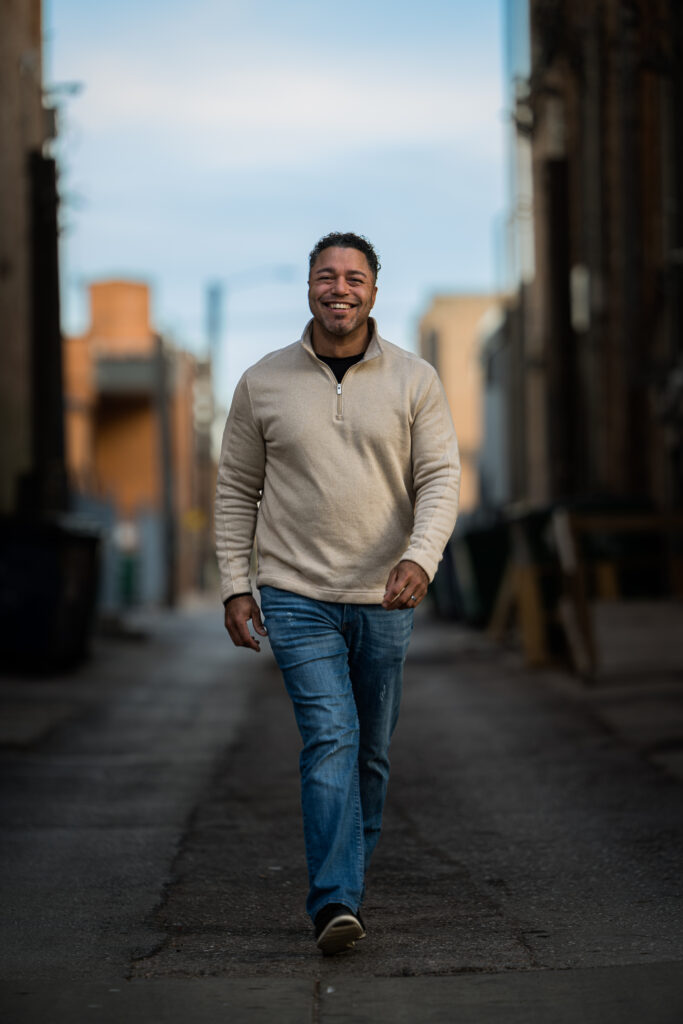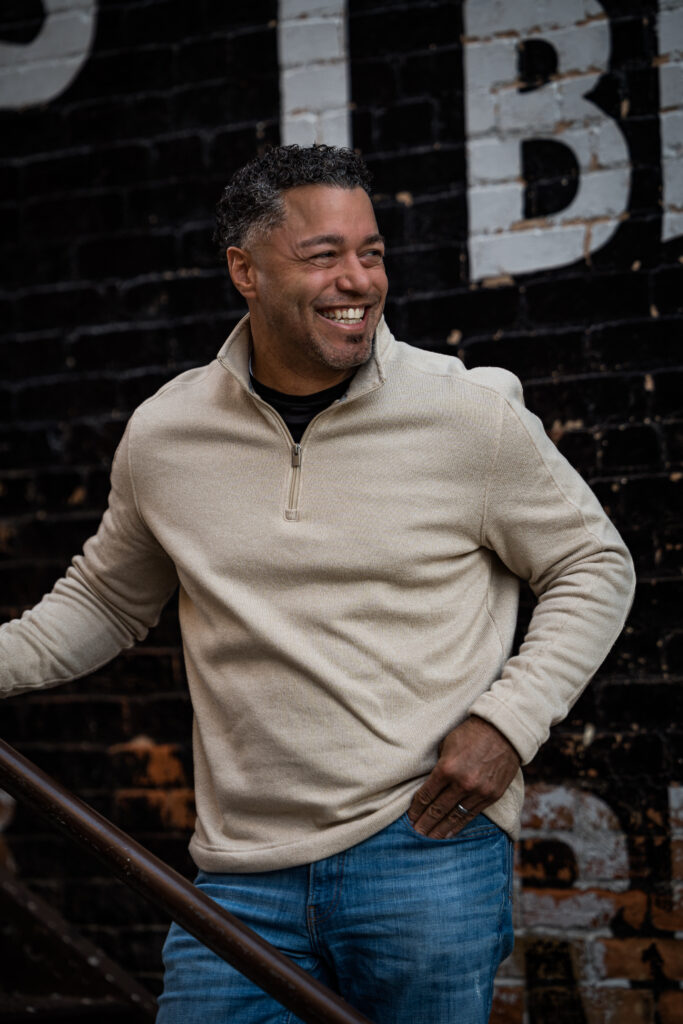
Sitting at his home, watching a Saturday football game this past September, Domico Rodriguez, 45, Executive Director of the Rapid City Sports Commission, discovered that he suddenly could not move his right hand. “I didn’t know what was going on, but I knew something was off,” Domico says. “I was trying to just figure out how to keep myself calm.” At some point during Domino’s initial experience of symptoms, he began to speak what he describes as gibberish, which his son took to be Spanish, even though Domico does not speak fluent Spanish. Soon after, he became unable to talk altogether.
His wife got him to Rapid City Hospital, it was there that emergency doctors determined that Domico was experiencing a stroke. “Everyone kind of jumped into action, and they wheeled me off, and I heard them say, ‘Get him into surgery.’ I was in surgery probably within 30 minutes of walking into the ER.”
The stroke collapsed an carotid artery and caused bleeding on Domico’s brain. Surgeons maneuvered a stent through his right arm and up behind his ear to fix the artery. Domico was put under the care of Jae Kim, M.D., Neurology and Rehabilitation, an Interventional Neurovascular Specialist who joined Monument Health in Spring 2021. Dr. Kim performs clot retrievals, aneurysm care and a broad range of interventions for blocked and ruptured blood vessels in the brain. Together with neurologist Lien Diep, M.D., Dr. Kim’s work has been key to establishing a comprehensive stroke program ensuring patients like Domico receive life-saving care, close to home.
After surgery, Domico was placed in the ICU for recovery. It wasn’t initially clear how damaging the stroke would prove to be, and, as Domico regained consciousness and control over the right side of his body, he found that was still unable to speak. At a post-surgery consultation with Dr. Kim, Sunday morning, Domico could understand what was being discussed, but he could not say anything himself. “My entire life revolves around sports,” he says, “for the betterment of the community. I am in front of cameras. I’m doing all this stuff from a PR standpoint. I talk for a living.” He began to worry that he would not be able to speak ever again.

Early Monday morning, though, during a routine check in with a nurse, Domico was suddenly able to speak again. The nurse called Domico’s family and summoned doctors and caregivers, including Dr. Kim. The development was deemed a minor miracle. Not long afterward, Domico was discharged from the hospital.
Although he felt about 90 percent recovered upon discharge, Domico’s family and doctors insisted that he stay home from work and recover, at least for a week. The following Saturday he was back on the sidelines coaching his son’s football game. He returned to his normal daily routine on Monday, two days later.
Domico did some initial speech therapy exercises to help jog his memory and practice words by association and found that his speech ability reformed rather quickly. The only remaining adverse effects from Domico’s stroke seem to be that he tires faster, which can cause him to slur and stutter. “My life is busy. And for me, to get back to work so quickly, and getting back to normal so quickly is kind of how I function,” he says. “And so that was my goal: to get back on the football field in a certain amount of time, get back to work, play golf with my friends a week later or two weeks later. And so that helped me, I feel, to recover. I’m pretty lucky.”

Beyond luck, Domico credits the quick actions of his wife and the decisiveness of his emergency caregivers, surgeons and staff in various departments throughout the organization. “Everyone was so good at Monument Health about follow-up appointments, and knowing that my insurance was getting ready to expire too, like, ‘Hey, we want to help you in that regard.’ And that was something that I was not expecting,” he says. “And they were like, ‘Well, let’s see what we can do.’”
Monument Health helped Domico get a reduced wait time to see a speech therapist and quickly get a sleep study, which resulted in Domico receiving sleep apnea care. Through continuity of care, this process was accelerated, he says, “Because they also wanted to find out what’s going on.”
It seems Domico’s stroke was just a freak occurrence, one of those things without apparent cause. “Being in decent shape, relatively young, that adds a big piece to the recovery,” he says. “The ER doctor told me, ‘If you have a stroke, you’ve got four hours to get help, because that’s your brain’s recovery time.’ So it was probably two hours from the time that I started the stroke to when surgery was completed. That also helped because it happened so fast, and Monument Health was there to treat it so fast. And that’s probably the reason why I was able to recover so fast.”
Story: Kory Lanphear
Photos: Robert Slocum